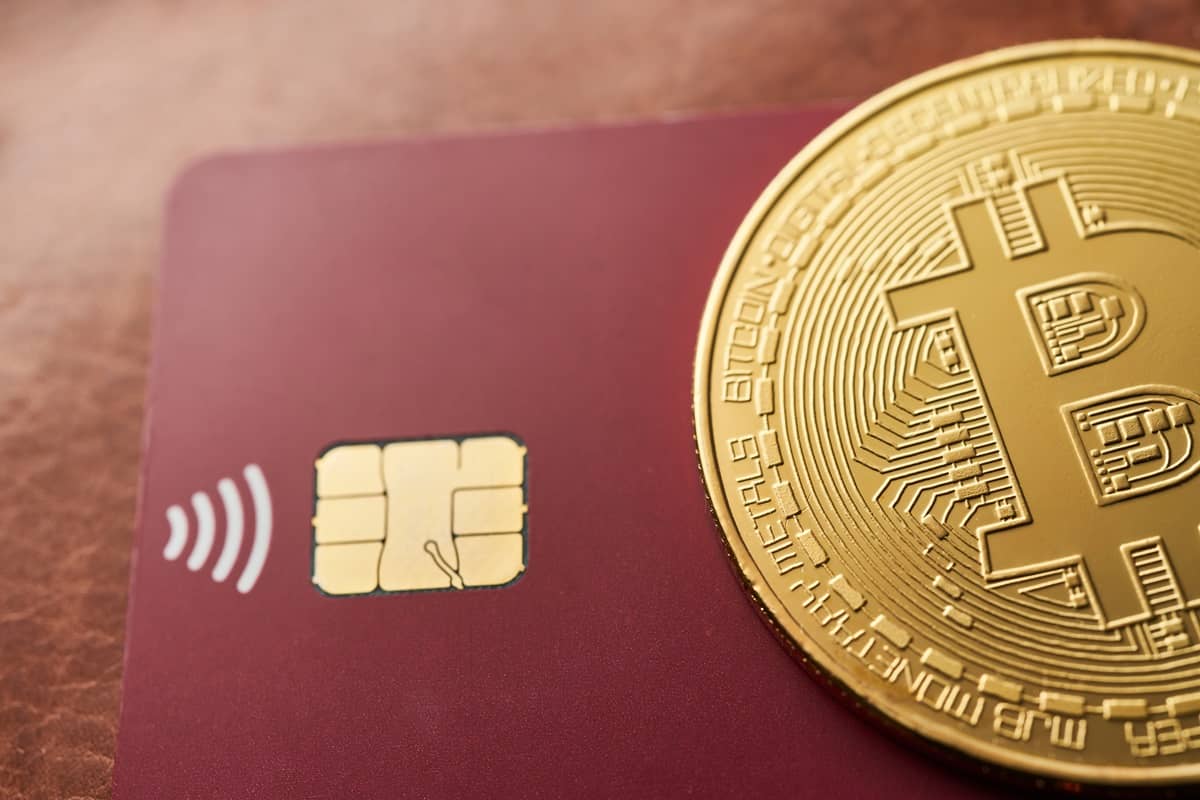
The world of cryptocurrencies has rapidly evolved, integrating more closely with traditional financial systems. A notable development in this fusion is the advent of crypto cards, which bridge the gap between digital assets and everyday spending. These innovative financial tools offer a unique way to leverage cryptocurrency holdings in both online and offline transactions. By converting digital currencies into fiat money seamlessly, crypto cards provide flexibility and ease of use, instigating a surge in their popularity among crypto enthusiasts.
"Crypto cards are not just a trendy accessory; they are a practical and efficient means to navigate the modern financial landscape." - Financial Expert
In this article, we will delve into the top 10 crypto cards available in the market, examining their features, benefits, and potential drawbacks. This guide aims to empower you to make informed decisions by providing comprehensive insights and practical advice for selecting the most suitable crypto card tailored to your needs and preferences.
What Are Crypto Cards?
Crypto cards are financial tools allowing users to seamlessly spend cryptocurrencies for everyday purchases. They function similarly to traditional credit or debit cards but are linked to a cryptocurrency wallet.
These cards enable real-time conversion of digital assets into fiat currencies, facilitating transactions at any merchant that accepts standard card payments. Users can leverage the flexibility and convenience of crypto cards to integrate their digital currency holdings into regular economic activities.
How Do Crypto Cards Work?
Crypto cards operate similarly to traditional debit or credit cards but utilize cryptocurrencies instead of fiat currencies. When a user makes a transaction, the card provider converts an equivalent amount of cryptocurrency into the local currency, allowing seamless payments at various merchants and ATMs worldwide.
Typically, crypto cards are linked to a crypto wallet that holds the user's digital assets. The card issuer handles the conversion process, providing real-time conversion rates to ensure accurate deductions from the user's crypto balance during transactions.
Many crypto cards offer additional features, such as cashback rewards, integration with mobile payment apps, and the ability to manage transactions through dedicated mobile applications. These features enhance the card's functionality and provide users with a comprehensive tool for everyday spending using cryptocurrencies.
Benefits of Using Crypto Cards
Crypto cards bridge the gap between digital and traditional finance, offering several advantages:
- Convenience: Crypto cards enable seamless spending of cryptocurrencies in everyday transactions, just like traditional debit or credit cards.
- Instant Conversion: They facilitate the automatic conversion of crypto to fiat currency at the point of sale, ensuring transactions are quick and hassle-free.
- Rewards and Cashbacks: Many crypto cards offer appealing rewards, including cashback in cryptocurrencies, which can be a valuable incentive for users.
- Global Acceptance: Supported by major payment networks like Visa and Mastercard, crypto cards are widely accepted worldwide.
- Enhanced Security: By using crypto cards, users can benefit from enhanced security features inherent to blockchain technology, reducing fraud and increasing transparency.
- Financial Inclusion: Crypto cards provide an accessible financial tool for the unbanked or underbanked, offering them greater control over their finances.
Potential Drawbacks of Crypto Cards
While crypto cards offer numerous advantages, they also come with potential drawbacks that users should be aware of:
- Volatility: Cryptocurrency values can fluctuate significantly, potentially affecting the purchasing power of funds held on the card.
- Fees: Some crypto cards come with high transaction fees, maintenance fees, and exchange fees, which can add up quickly.
- Limited Acceptance: Not all merchants accept crypto cards, which can limit their usability in certain regions or for specific purchases.
- Regulatory Issues: The regulatory landscape for cryptocurrencies is constantly evolving, and changes in laws can impact card usage and associated services.
- Security Risks: As with any digital asset, crypto cards are vulnerable to hacking and other cyber threats.
- Redemption Restrictions: Some crypto cards may have restrictions on how and when you can convert your crypto to fiat currency.
Criteria for Selecting the Best Crypto Card
When selecting the best crypto card, consider several key criteria to ensure it meets your needs.
- Security: Look for cards that offer strong security features such as two-factor authentication, biometric verification, and encrypted communication.
- Supported Cryptocurrencies: Evaluate whether the card supports a wide range of cryptocurrencies, especially those you frequently use or plan to use.
- Fees and Charges: Analyze the fee structure, including transaction fees, monthly or annual fees, and any hidden costs. Lower fees can significantly impact your overall savings.
- Rewards and Benefits: Some crypto cards offer cashback, rewards, or other incentives. Compare these benefits to determine which card provides the best value.
- Global Acceptance: Ensure the card is widely accepted by merchants and ATMs worldwide, providing greater flexibility during travel and everyday use.
- Ease of Use: Consider the user-friendliness of the card's platform and mobile app, as a seamless experience can enhance your usage.
- Customer Support: Reliable customer support can be crucial for resolving any issues or inquiries promptly. Check for 24/7 availability and multiple support channels.
- Regulation and Compliance: Ensure the card issuer complies with relevant regulations and has necessary licenses to operate in your region, providing added peace of mind.
By carefully evaluating these criteria, you can select a crypto card that aligns with your financial goals and lifestyle preferences.
Overview of the Top 10 Crypto Cards
When exploring the top crypto cards, it is essential to assess their unique features, range of supported cryptocurrencies, fee structures, and global usability. This overview presents a snapshot of the market's leading options, setting the stage for a more detailed analysis in subsequent sections.
- Coinbase Card: Allows users to spend directly from their Coinbase account, supports multiple cryptocurrencies, and offers up to 4% rewards.
- Binance Card: Integrates seamlessly with the Binance trading platform, providing up to 8% cashback and contactless payments.
- Crypto.com Visa Card: Offers multiple tiers with varying benefits, including up to 8% cashback, free ATM withdrawals, and no annual fees.
- BitPay Card: Supports spending in US dollars while linking to various cryptocurrencies, offering instant reloads and no conversion fees for US residents.
- Wirex Visa Card: Combines traditional fiat currencies with cryptocurrencies, offering up to 2% in crypto rewards and free ATM withdrawals.
- Nexo Card: Offers credit line functionality with up to 2% cashback and the ability to spend without selling crypto assets.
- Revolut Metal Card: A premium offering with up to 1% cashback on purchases outside of Europe and a suite of additional banking features.
- Crypterium Card: Crypterium (CRPT) is a cryptocurrency that operates on the Ethereum platform, aiming to bridge traditional finances and digital assets.
- BlockFi Rewards Visa Card: Focuses on earning rewards in Bitcoin, providing users with 1.5% back in BTC on every purchase and no annual fee.
- Bitwala Card: Bitwala is Germany’s cryptocurrency flagship with the mission of building the bank to bridge traditional and blockchain-based finance.
Each card brings its own strengths to the table, catering to various user needs and preferences. The detailed features section will delve deeper into what each card offers.
Detailed Features of Each Crypto Card
The following is a detailed examination of the top 10 crypto cards, shedding light on their unique features, benefits, and potential downsides:
1. Coinbase Card
- Integration with Coinbase account for seamless crypto spending
- Supports a wide range of cryptocurrencies
- Instant conversion of crypto to fiat currency at the point of sale
- Rewards program offering up to 4% back in crypto
- Potential drawbacks: Higher fees for international transactions
2. Binance Card
- Free issuance for Binance users
- Up to 8% cashback on eligible purchases
- Supports multiple cryptocurrencies, including BTC, BNB, and ETH
- No monthly or annual maintenance fees
- Potential drawbacks: Limited to Binance ecosystem
3. Crypto.com Visa Card
- Prepaid card offering up to 8% cashback
- Additional benefits include Spotify, Netflix, and Amazon Prime rebates
- Rewards in the form of CRO tokens
- Supports both cryptocurrencies and fiat currencies
- Potential drawbacks: Staking CRO tokens required for higher benefits
4. BitPay Card
- Reloadable card available in the US
- Spend crypto anywhere that accepts MasterCard
- Supports conversion of BTC, BCH, ETH, and other cryptos
- Instant reload from crypto wallet to card
- Potential drawbacks: Fees for ATM withdrawals and currency conversions
5. Wirex Visa Card
- Offers up to 2% Cryptoback rewards on all in-store purchases
- No monthly fees for standard accounts
- Supports over 150 fiat and crypto currencies
- Integrated with the Wirex app for easy management
- Potential drawbacks: Cryptoback rewards limited to in-store purchases only
6. Nexo Card
- Credit-based card with no minimum monthly repayments
- 2% cashback on every purchase in BTC or NEXO tokens
- Automatic conversion of crypto to fiat for spending
- No foreign exchange fees for transactions in other countries
- Potential drawbacks: Relatively new in the market, establishing trust and reliability
7. Revolut Metal Card
- Supports crypto purchases alongside traditional banking features
- Up to 1% cashback on card transactions
- Comprehensive app for managing spending, investments, and savings
- Exclusive perks such as travel insurance and airport lounge access
- Potential drawbacks: Limited to premium Revolut accounts only
8. Crypterium Card
- Global card usable in over 178 countries
- Supports BTC, ETH, LTC, and USDC
- Instant conversion of cryptocurrency to fiat currency
- Compatible with Apple Pay and Google Pay for contactless payments
- Potential drawbacks: Fees can be high for certain transactions
9. BlockFi Visa Rewards Card
- 1.5% back in Bitcoin on every purchase
- No annual fee
- Up to 3.5% back in the first 90 days
- Integrated with BlockFi account for seamless rewards management
- Potential drawbacks: Rewards limited to Bitcoin only
10. Bitwala Card
- Combines banking, crypto trading, and card into one platform
- No setup fees or monthly charges
- Supports BTC and ETH
- Real-time conversion of crypto to fiat at point of sale
- Potential drawbacks: Limited to Bitcoin and Ethereum only
Fees and Charges Associated with Crypto Cards
Understanding the fees and charges associated with crypto cards is crucial for making an informed decision. These costs can vary significantly depending on the provider and card type. Here's a breakdown of common fees to look out for:
- Issuance Fees: Some crypto cards may charge an initial fee for issuing the card, which can range from $5 to $20.
- Monthly/Annual Fees: Certain cards have recurring maintenance fees, which could be monthly or annually. These fees can vary widely, from $0 for basic cards to $300 per year for premium options.
- Transaction Fees: These include fees for making purchases or withdrawing cash. While some cards offer free transactions, others might charge a percentage of the transaction amount or a flat fee.
- Foreign Transaction Fees: When using a crypto card abroad, some providers impose additional fees, typically between 1% and 3% of the transaction amount.
- ATM Withdrawal Fees: Withdrawing cash from an ATM using a crypto card can incur fees, such as a fixed amount per withdrawal or a percentage of the withdrawn amount.
- Conversion Fees: Converting cryptocurrency to fiat money generally incurs a fee, often a percentage of the transaction value, ranging from 0.5% to 2%.
- Inactivity Fees: Some cards impose inactivity fees if the card is not used for a certain period, usually around $5 to $10 per month of inactivity.
Each card issuer has a unique fee structure, so it is essential to review the terms and conditions thoroughly before applying. Understanding these fees will help users choose a card that best fits their financial habits and goals.
Supported Cryptocurrencies and Fiat Currencies
Each crypto card supports a range of cryptocurrencies and fiat currencies, which can significantly influence its suitability for different users. Understanding the supported currencies is essential for maximizing the benefits of a crypto card.
Coinbase Card: Supports major cryptocurrencies like Bitcoin (BTC), Ethereum (ETH), and Litecoin (LTC), along with USD, EUR, and GBP for fiat transactions.
Binance Card: Enables spending of BTC, ETH, Binance Coin (BNB), and more, with fiat support for EUR.
Crypto.com Visa Card: Offers a wide array of cryptos, including BTC, ETH, XRP, and supports multiple fiat currencies such as USD, EUR, and GBP.
BitPay Card: Allows spending of BTC, ETH, and other major cryptos, with support for USD for fiat transactions.
Wirex Visa Card: Supports BTC, ETH, LTC, and several others, alongside fiat currencies like USD, EUR, GBP, and AUD.
Nexo Card: Provides access to BTC, ETH, and various other cryptos, with fiat currencies including USD, EUR, and GBP.
Revolut Metal Card: Broad crypto options including BTC, ETH, and fiat currencies like USD, EUR, and GBP.
Crypterium Card: Compatible with BTC, ETH, LTC, and supports EUR and USD for fiat.
BlockFi Visa Rewards Card: Primarily rewards users in BTC but operates with traditional fiat currencies for spending.
Bitwala Card: Supports BTC, ETH, and fiat currencies including EUR.
Choosing a crypto card with the right mix of supported cryptocurrencies and fiat currencies is crucial for seamless and cost-effective transactions.
Global Acceptance and Usability
Global acceptance and usability of crypto cards depend on several factors, including the card issuer's partnerships with payment networks, regional regulations, and the availability of supporting infrastructure.
Payment Network Partnerships: Most crypto cards are backed by established payment networks such as Visa or Mastercard, enabling widespread acceptance at millions of merchants globally. This eliminates the need for merchants to specifically accept cryptocurrencies, as transactions are processed in local fiat currencies.
Regional Regulations: The legal landscape for cryptocurrencies varies by country. Some regions have embraced digital currencies, ensuring seamless use of crypto cards, while others impose stringent regulations that may limit the functionality or availability of these cards. It's crucial for users to be aware of their local regulatory environment.
Supporting Infrastructure: Effective integration with financial systems, including ATMs and online payment portals, enhances the practicality of crypto cards. Users can withdraw cash or make online purchases just as they would with traditional banking cards.
To summarize, the global acceptance and usability of crypto cards are broadly dependent on the interplay between payment network partnerships, regional regulations, and the existing financial infrastructure.
How to Apply for a Crypto Card
Applying for a crypto card typically involves a few straightforward steps:
- Research and Compare: Begin by comparing various crypto cards based on factors such as fees, supported cryptocurrencies, and benefits. Choose the card that best fits your needs.
- Visit the Provider's Website: Go to the official website of your chosen crypto card provider.
- Account Creation: If you do not already have an account with the platform, you will need to create one. This process usually requires an email address and password.
- Identity Verification: Most providers require identity verification for regulatory compliance. Be prepared to submit identification documents such as a passport or driver's license.
- Choose Your Card Type: Some providers offer multiple card types with different benefits and fees. Select the card that matches your requirements.
- Link Your Wallet: Connect your cryptocurrency wallet to the card. This usually involves inputting your wallet address or scanning a QR code.
- Order Your Card: Complete the application form and submit your order. Some providers may charge an issuance fee.
- Receive and Activate: Once your application is approved, the card will be shipped to you. Upon receipt, follow the activation instructions provided by the issuer.
After you have received and activated your crypto card, you can start using it to make purchases, withdraw cash from ATMs, and benefit from various rewards and cashback programs.
Tips for Maximizing the Benefits of Your Crypto Card
To fully maximize the benefits of your crypto card, consider the following tips:
- Understand the Fees: Be aware of any fees associated with your card, including transaction fees, ATM withdrawal fees, and currency conversion fees.
- Utilize Rewards Programs: Take advantage of any rewards programs offered, such as cashback, staking rewards, or crypto-back incentives.
- Monitor Transaction Limits: Know the daily and monthly transaction limits to avoid unnecessary disruptions in your spending activities.
- Stay Informed About Exchange Rates: Cryptocurrency values fluctuate frequently. Stay updated on exchange rates to make timely and cost-effective transactions.
- Ensure Security: Activate security features such as two-factor authentication (2FA) and transaction alerts to safeguard your funds.
- Choose a Card With Broad Acceptance: Opt for a card that is widely accepted globally to ensure smooth transactions, especially when traveling.
- Regularly Review Statements: Keep a close eye on your transaction statements to monitor for any unauthorized charges and to track your spending.
By following these tips, you can enhance your experience and leverage the full range of benefits provided by your crypto card, ensuring a seamless integration of cryptocurrency into your everyday financial activities.
Future Trends in Crypto Cards
As the cryptocurrency landscape continues to evolve, several emerging trends are worth noting in the realm of crypto cards:
- Increased Card Issuance by Crypto Exchanges: More cryptocurrency exchanges are likely to launch their own branded cards, making it easier for users to spend their holdings directly.
- Expanded Reward Programs: Users can expect more extensive and innovative rewards programs, including cashback, crypto rebates, and exclusive offers tailored to cardholders.
- Integration with Decentralized Finance (DeFi): Future crypto cards may offer seamless integration with DeFi platforms, allowing users to earn interest and rewards on their crypto holdings directly through card transactions.
- Enhanced Security Features: As security concerns remain paramount, future crypto cards will likely incorporate advanced security measures such as biometric authentication and advanced encryption technologies.
- Broader Global Acceptance: The global acceptance of crypto cards is expected to improve, with more merchants and service providers recognizing and accepting cryptocurrency payments worldwide.
- Lower Fees and Transparent Pricing: Competition will drive providers to reduce fees and offer more transparent pricing structures, making crypto cards more accessible to a broader audience.
These trends indicate that crypto cards are poised to become more user-friendly, secure, and integrated with broader crypto ecosystems. As the market develops, staying informed about these trends can help users maximize the benefits of their crypto cards.
Conclusion and Final Recommendations
As the cryptocurrency landscape continues to evolve, crypto cards offer a seamless integration between digital assets and everyday spending. The top 10 crypto cards each have unique features and benefits tailored to different user needs, from transaction fees to rewards programs.
When selecting a crypto card, consider factors such as the supported cryptocurrencies, fees, reward structures, and global acceptance. A card that fits your specific spending habits and financial goals will provide the most value.
For those seeking the utmost in rewards and low fees, the Crypto.com Visa Card and BlockFi Visa Rewards Card stand out. Meanwhile, users prioritizing global usability and diverse currency support may find the Wirex Visa Card and Nexo Card appealing.
Ultimately, the "best" crypto card will vary based on individual preferences and use cases. By carefully evaluating the cards highlighted in this article, users can make informed decisions to maximize the benefits of their cryptocurrency investments.



